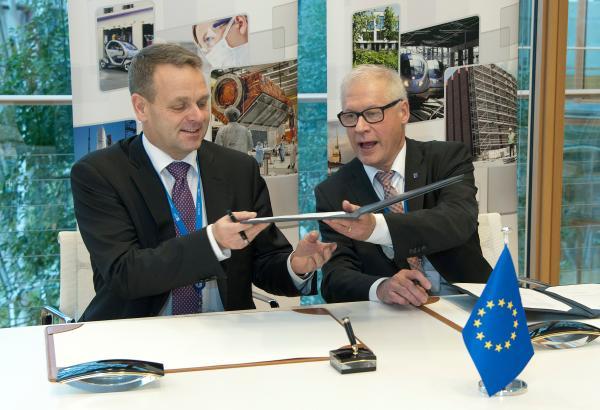
The European Investment Bank (EIB) has provided a EUR 75m long-term loan for the expansion, renovation and improvement of the university hospital in Oulu, which will secure its position as one of the leading university hospitals in Finland. The borrower is the Northern Ostrobothnia Hospital District, an innovative, reforming and productive hospital operator providing healthcare services for around 740,000 people.
The EIB loan will support the “Future Hospital 2030” programme – a long-term modernisation strategy aimed at reconfiguring hospital premises, developing a new operational model, improving productivity and increasing quality of care. The EU bank will in particular finance the construction of a children’s and women’s hospital, as well as the upgrading of support services, such as a patient hotel and logistics centre. The modernisation of Oulu University Hospital, the most northerly tertiary healthcare facility in Finland, is in line with recent demographic trends in the country. Investments backed by the EIB will also improve students’ education conditions and enhance the opportunities to strengthen the hospital’s research and development activities.
EIB Vice-President Jan Vapaavuori said, “The European Investment Bank is committed to supporting long-term investment that improves the availability, access and cost of healthcare. Modernising university hospitals is essential to ensure high quality healthcare, especially in the context of Finland’s social and healthcare reform. We are pleased to support Oulu University Hospital’s renovation programme, as it will benefit patients from across the country and foster research of international importance.”
Hannu Leskinen, Director of the Hospital District, said, “We are very satisfied with this long-term funding agreement with the EIB. We have a pressing need to renovate and renew our hospital facilities and make the hospital more efficient in the future. This EUR 75m loan is the first tranche of the EUR 240m loan authorisation for the financing of Future Hospital 2030. While the due diligence process for the EIB loan was very detailed and insightful, it also challenged us to improve, for example, the energy efficiency of the new hospital buildings.”
Clear goals of the hospital upgrading programme are: the flexible use of resources, renewal of the professional division of labour, standardisation of facilities and operations, utilisation of information systems and technology, efficient logistics solutions, comfortable facilities, multifunctionality and versatility, as well as energy efficiency and the use of renewable energy sources. By utilising the latest technology and information systems, it will be possible to enhance the operations and enable healthcare experts to focus on their core expertise. All this will improve the quality of healthcare and the treatment experience of the patients.
This EUR 75m loan from the EIB further confirms the Bank’s commitment to finance the Finnish healthcare sector. In the past three years alone, the EU bank has financed investments in hospitals in Jyväskylä, Tampere, Kuopio and Espoo.

Photographer: EIB ©To be defined
Download original

Photographer: EIB ©To be defined
Download original

Photographer: EIB ©To be defined
Download original

Photographer: EIB ©To be defined
Download original

©Oulu University Hospital
Download original